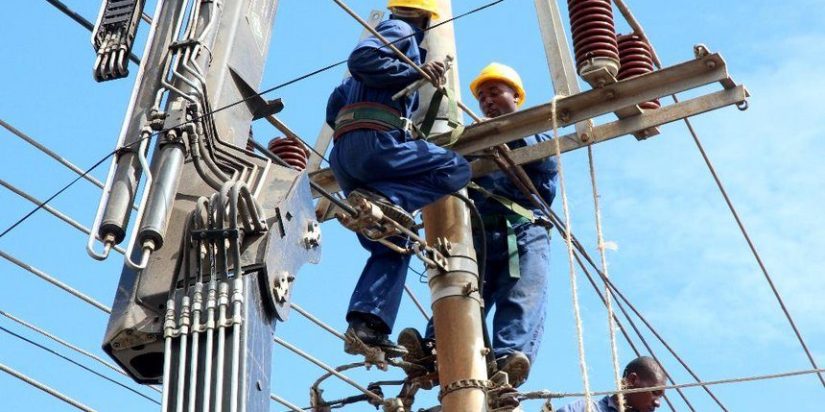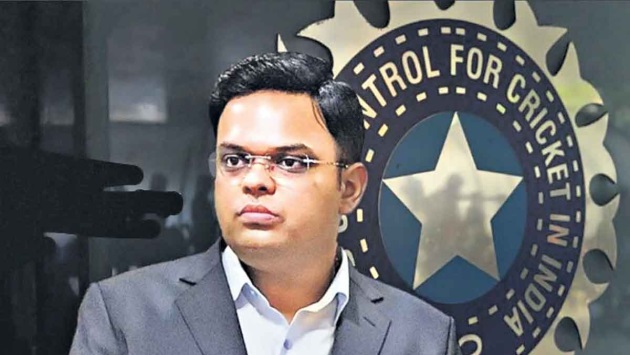
Nicole Scott was told by a doctor the extreme pain she dreaded waking up to every day, which forced her to quit her job and caused her to collapse in the bathroom, “was all in her head”. However, after a year of fighting for answers, the 31-year-old was finally told she had stage four endometriosis. She has now shared her experience of getting diagnosed in her own words.
No one ever tells you being a woman is easy, but living with a chronic illness like endometriosis is a whole different level. You feel trapped in a body that is no longer your own and you spend every day in the worst pain imaginable with no end in sight. I had to come off the pill in 2021 after 12 years due to recurrent ruptured cysts on my ovaries and a year later I started to get horrendous period pain - only it was not just period pain.
I was in agony for three weeks of the month which would start a week before my period. When I finally decided to go to my GP he mentioned he thought it may be endometriosis and prescribed me strong co-codamol for the pain. I was living in Northern Ireland at the time and they only had one specialist and it was around a two-year wait to be seen.
I was due to move to Kent the following year and wanted to resolve it before then so I decided to pay for private health care. I managed to get a consultation and have a scan on the same day. It came back clear but the doctor said I had all the symptoms of endometriosis.
The only way to diagnose endometriosis is by laparoscopic surgery - which involves inserting a camera into the pelvis - and he could do it in four weeks but it would cost £6,000. As I did not have money to spare at the time, I decided to grin and bear the pain. The co-codamol helped at first but after eight months it was not even touching the sides.
I had lived on St Mary’s Island, in Chatham, for three months before I had my first massive flare-up. I passed out on the bathroom floor with pain and thankfully, my partner was home and called an ambulance. I was kept in hospital for two days for scans but, as before, everything showed up normal and I was told to go home and make an appointment with my GP.
I just could not get my head around it. How was everything fine when I was in the worst pain I had ever felt? Over the months the pain got worse. I had more hospital visits where I was told I was fine and one doctor even said the pain was in my head.
I was now living on oramorph - a liquid form of morphine - to get by. I was a nurse in the community and was missing work due to the severe pain. There were days when I was bed-bound and unable to move from the pain.
I just remember thinking how can I look after anyone if I cannot look after myself? Eventually, my family had had enough and thanks to my in-laws and partner, I was able to see a top endospecialist for the southeast. He said he was not sure if I had endometriosis as all my scans were clear but agreed to do the surgery and 10 days later I had the operation. To say I was shocked at my results was an understatement.
I had stage four endometriosis. My uterus, ovaries and fallopian tube were covered, it had also severely affected my sciatic nerve, uterosacral ligament and bowel. My pain was finally gone and I felt like a new woman but six months after surgery the pain was back and by nine months it was worse than before.
The pain was so bad I ended up with depression and I remember thinking I cannot do this anymore, this is not me and this is not my body. I had gone from being so fit and healthy to having to rely on my partner to carry me to the toilet or help me get washed and dressed. I had to reduce my workload massively and I remember just crying my eyes out every day thinking why me and why was no one helping me? I had worked so hard to get where I got in my career and now I could not do the one job I love.
Thankfully, I was then put on antidepressants and now work in an office as a paediatric complex care coordinator. After arguing my case with my GP, I have also been placed under a British Society for Gynaecological Endoscopy (BSGE) hospital which specialises in endometriosis. I am on the list for my next surgery which is a full hysterectomy.
This does not cure endometriosis but as it is so severe and I cannot have children, I would rather get it all out. People do not understand how bad this illness is, it spreads like cancer and mine has now spread to my bladder resulting in my having a catheter. I am on the strongest dose of morphine but the pain still comes through, I need a walking stick as my mobility has taken a turn for the worse and I am on prostap - a drug to induce menopause - to prevent more endometriosis growth.
I feel like my life has been stripped of me due to this illness. At the minute there is no cure for endometriosis and I think the NHS does not take it seriously. To be diagnosed you must have an operation by a gold-standard surgeon in endometriosis and we do not have enough of them in the UK, which is why there is an eight-year wait.
I was extremely fortunate to be able to pay privately for my surgery but few women can do that. I have spoken to women around the world who also feel failed by the healthcare system and trapped in their bodies surrounded by pain. More needs to be done and the more we speak up hopefully things will change.
What is endometriosis? Endometriosis is a disease in which cells, similar to those in the lining of the uterus, grow in other parts of the body. The tissues act as the lining, which grows inside the uterus, would. It thickens, breaks down and bleeds during a person’s period but as it is not in the right area, it cannot leave the body.
This can cause severe pain, heavy periods, fatigue and can make it difficult to get pregnant, amongst other symptoms. Many women, like Nicole, say they are told they are “being dramatic” or the pain is in their heads when attempting to find answers and get a diagnosis. Around one in 10 women in the UK suffer from the disease and is the second most common gynaecological condition in the country, however, the cause is unknown.
According to the non-profit organisation Endometriosis UK, it can take, on average, eight years and 10 months for a person’s first GP visit to get a diagnosis. Because the symptoms are so similar to other conditions and as the disease can manifest in different ways, it can be difficult to spot meaning the only definitive way to know is by a laparoscopy..








